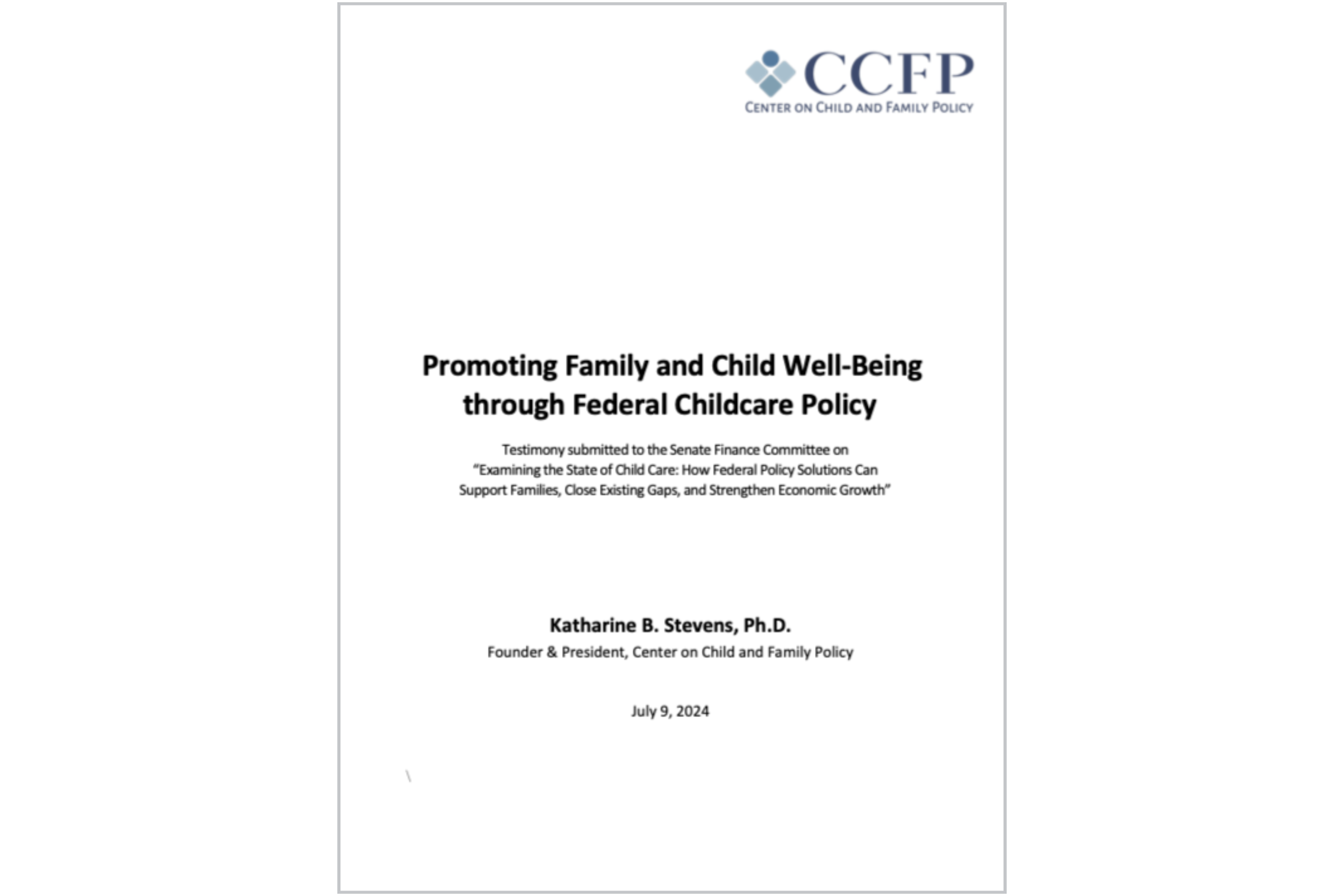CHILDCARE
Following her testimony at the Senate Finance Committee’s hearing on “Examining the State of Child Care,” Katharine Stevens answered Senators’ questions on four key childcare policy topics.
Federal policy must target the lower-income families who need access to good childcare the most — aiming to empower parental choice, ensure better use of current federal funds, and promote a much-increased state role in funding childcare.
Federal policymakers should aim to: 1) Boost choice for low-income parents. 2) Shore up family childcare. 3) Break down bureaucratic silos to amplify impact of current funding. 4) Leverage a broader range of federal funds. 5) Promote state leadership in early care and education.
Ivana Greco explains why America needs a “GI Bill for Homemakers” to recognize and support parents who spend time on the “home front,” dedicating themselves to the crucial work of family and community.
Family researcher Jenet Erickson sheds new light on the role of work and childcare in child, maternal, and family well-being, and the care preferences of women with young children.
Katharine talks with Ivana Greco about her unusual path from Harvard-educated attorney to full-time "stay-at-home mom," caring for her toddler and homeschooling her two young sons.
Dr. Katharine Stevens joins host Nic Dunn of the Sutherland Institute to help recenter true pro-family policy at the core of public debates and offer policymakers and voters a framework for a better approach.
Is Build Back Better really dead? Katharine B. Stevens analyzes the childcare and universal preschool provisions of BBB, revealing a detailed legislative blueprint of an increasingly influential vision for America’s young children: federally-controlled preschool programs for all children from birth onwards.
Our core policy goal must be to reinforce the fundamental bonds of family: elevating — rather than displacing — the vital role of parents in raising their own children, especially during the first, foundational years of development.
Boosting access to high-quality childcare for children from disadvantaged families is an important policy goal. But a large, non-targeted expansion of publicly funded childcare will not be in the best interests of young children overall.
The question of childcare is fundamentally about with whom and in what environments young children spend the critical first years of their lives. A growing focus on other policy goals is causing us to leave out this essential piece of the family picture.
Katharine Stevens joins Naomi Schaefer Riley and Ian Rowe on Are You Kidding Me? to discuss the importance of families in child development, how to better utilize existing systems to improve outcomes for children, and the role of public policy in creating cultural change.
Dr. Katharine B. Stevens joins Traci DeVette Griggs of Family Policy Matters Radio to discuss the drivers of early brain development, how we can support families to help children thrive, and why this is a pivotal moment for early childhood policy.
Katharine B. Stevens joins Emily Jashinsky on the Federalist Radio Hour to discuss the science and policy of early development. Is “public education starting at birth” the right policy approach in early childhood?
Dr. Katharine B. Stevens joins Saurabh Sharma on American Moment’s Moment of Truth to discuss child and family policy in the U.S. and what young children truly need to thrive.

















